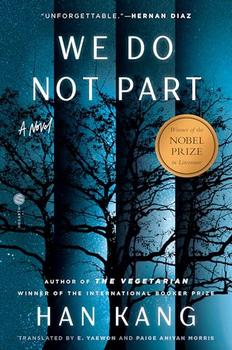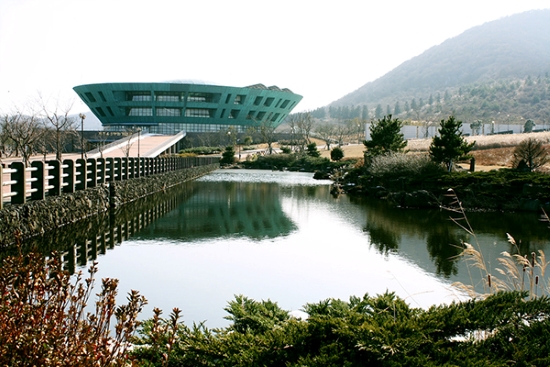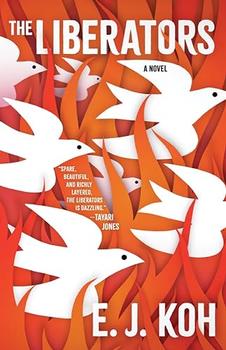Summary | Excerpt | Discuss | Reviews | Beyond the book | Read-Alikes | Genres & Themes | Author Bio

A Novel
by Han KangHan Kang's most revelatory book since The Vegetarian, We Do Not Part tells the story of a friendship between two women while powerfully reckoning with a hidden chapter of Korean history.
One winter morning, Kyungha receives an urgent message from her friend Inseon to visit her at a hospital in Seoul. Inseon has injured herself in an accident, and she begs Kyungha to return to Jeju Island, where she lives, to save her beloved pet—a white bird called Ama.
A snowstorm hits the island when Kyungha arrives. She must reach Inseon's house at all costs, but the icy wind and squalls slow her down as night begins to fall. She wonders if she will arrive in time to save the animal—or even survive the terrible cold that envelops her with every step. Lost in a world of snow, she doesn't yet suspect the vertiginous plunge into the darkness that awaits her at her friend's house.
Blurring the boundaries between dream and reality, We Do Not Part powerfully illuminates a forgotten chapter in Korean history, buried for decades—bringing to light the lost voices of the past to save them from oblivion. Both a hymn to an enduring friendship and an argument for remembering,it is the story of profound love in the face of unspeakable violence—and a celebration of life, however fragile it might be.
The prose is a blend of poetic and straightforward, offering appeal to a wide range of readers, but what keeps the story moving forward is the unmasking of realities behind the Jeju uprising. The first part primarily focuses on Kyungha's travels, while the second dives deep into the massacre, and the third attempts to provide some closure as we reckon with what we've learned. Kang doesn't shy away from the painful details of history but still creates a tone that doesn't feel too depressing. This is a story that teems with hope and resilience while uncovering a nation's painful past and profound loss, showing how people find ways to survive and live with tragedies...continued
Full Review
 (929 words)
(929 words)
(Reviewed by Letitia Asare).
 Han Kang's latest novel, We Do Not Part, delves into a dark part of Korean history known as the Jeju uprising, the Jeju massacre, or (in Korea) "Jeju 4.3," for the day it began. Jeju, Korea's largest island, located southwest of the Korean peninsula, is sometimes today called "the Hawaii of Asia." In the introduction to a recent article about Jeju by the author Gary Shteyngart, Condé Nast Traveler referred to it as "the world's most eccentric island paradise." However, only 75 years ago, it was the location of horrific and devastating political violence, when 10% of the native Jeju population was killed and many more displaced.
Han Kang's latest novel, We Do Not Part, delves into a dark part of Korean history known as the Jeju uprising, the Jeju massacre, or (in Korea) "Jeju 4.3," for the day it began. Jeju, Korea's largest island, located southwest of the Korean peninsula, is sometimes today called "the Hawaii of Asia." In the introduction to a recent article about Jeju by the author Gary Shteyngart, Condé Nast Traveler referred to it as "the world's most eccentric island paradise." However, only 75 years ago, it was the location of horrific and devastating political violence, when 10% of the native Jeju population was killed and many more displaced.
At the close of World War II, the Japanese occupation of Korea (1910-1945) was ended by Allied ...

If you liked We Do Not Part, try these:

by Heinz Insu Fenkl
Published 2023
A "mesmerizing" (PW, James McBride) "magnificent" (Ha Jin) intergenerational coming-of-age novel set in South Korea—about friendship, belonging, and displacement.

by E.J. Koh
Published 2023
Extraordinarily beautiful and deeply moving, The Liberators is an elegantly wrought family saga of memory, trauma, and empathy, and a stunning testament to the consequences and fortunes of inheritance.